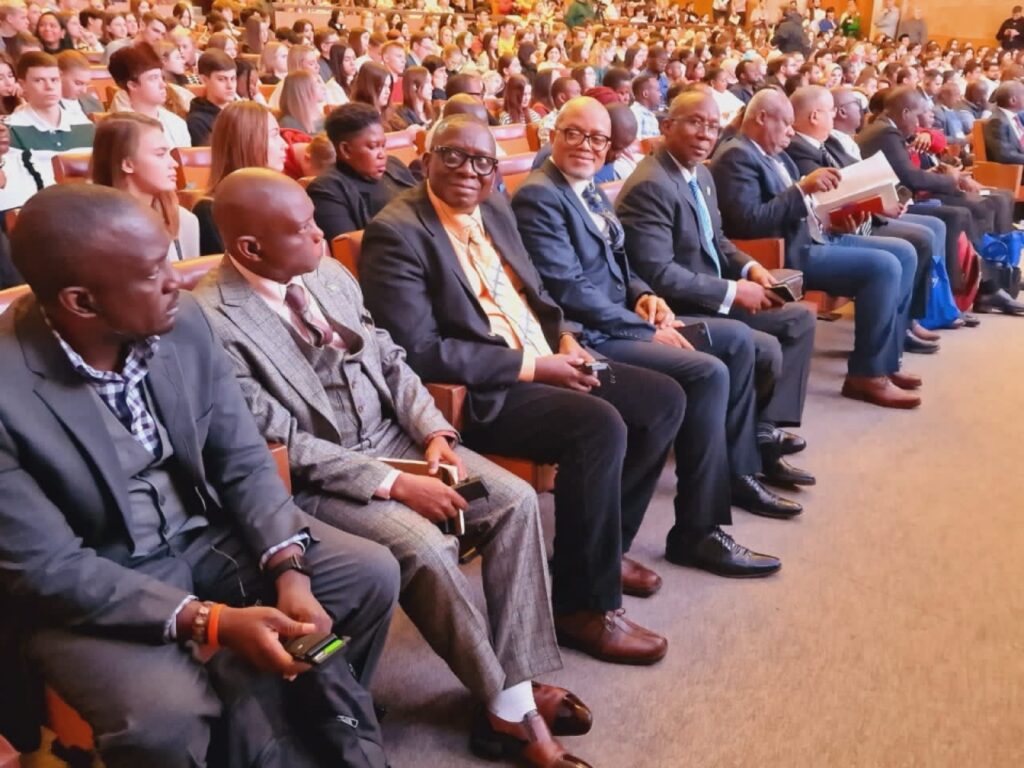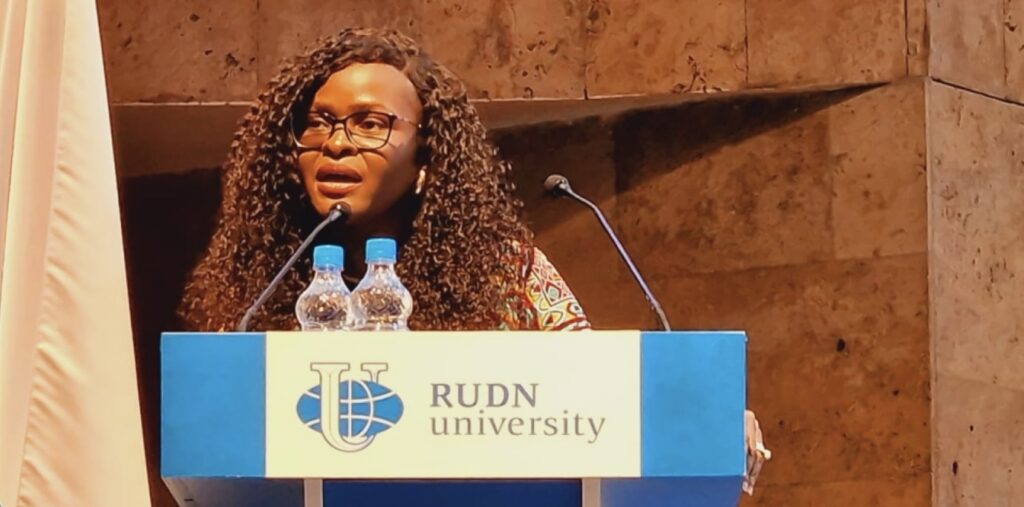The Minister of Technical and Higher Education, Dr Haja Ramatulai Wurie, says medical education plays a pivotal role in advancing Sustainable Development Goals (SDGs) 4 and 3, aligning with the broader agenda of achieving quality education and promoting good health and well-being.
She was speaking at the Plenary Session of the Scientific Conference organised by the People’s Friendship University, named after Patrice Lumumba (RUDN) on the theme: “For the Sustainable Development of Civilization: Corporation, Science, Education, Technology – Africa’s Pathway to the 17 SDGs: An Integrated Approach.”
“In the pursuit of sustainable healthcare development, medical education emerges as a key player, connecting the ideals of SDGs 4 and 3. Grounded in the principles of quality education and good health and well-being, this dialogue explores how medical education shapes healthcare professionals, transforming the global health landscape. Delving into interdisciplinary approaches, global perspectives, ethical considerations, and technological advancements, we navigate the challenges and opportunities inherent in educating the next generation of healthcare leaders”, the Minister said. She added: “From fostering collaboration among health disciplines to addressing global health crises, the symbiosis between medical education and sustainable development goals form the crux of our exploration.
Medical education plays a pivotal role in advancing Sustainable Development Goals (SDGs) 4 and 3, aligning with the broader agenda of achieving quality education and promoting good health and well-being. “Firstly, it serves as a cornerstone for SDG 4 by equipping healthcare professionals with essential skills and knowledge, fostering effective and ethical healthcare. Secondly, professionals trained through robust medical education programs play a critical role in advancing SDG 3.
They instil a commitment to evidence-based practice, ethical considerations, and a patient-centred approach, contributing to improved healthcare delivery. This alignment underscores the pivotal role of medical education in creating a sustainable healthcare workforce dedicated to advancing global health goals. “In tandem with medical education’s pivotal role in SDGs 4 and 3, there is a pressing need for an interdisciplinary approach in healthcare training. Recognizing that medical professionals must extend their expertise beyond clinical skills, this holistic approach encompasses public health, ethics, and social determinants of health. Integrating these broader perspectives into medical education enhances both educational quality (SDG 4) and the overarching goal of improving healthcare delivery (SDG 3). The interdisciplinary approach ensures healthcare professionals are equipped to collaborate across disciplines, comprehensively addressing health challenges. “In conjunction with interdisciplinary and globally conscious medical education, the emphasis on community and patient-centred education becomes paramount. This paradigm places significant emphasis on understanding and addressing the unique needs and perspectives of communities served by healthcare professionals, aligning with SDGs 4 and 3. Through community and patient-centred education, medical professionals are equipped with clinical expertise and instilled with empathy, cultural competence, and the ability to engage collaboratively with diverse populations. This educational approach ensures healthcare services are not only accessible but also tailored to meet the unique needs of individuals and communities, fostering sustainable health outcomes.

Minister of Technical and Higher Education, Dr. Ramatulai Wurie, mentioned that competence and diversity within medical education stand out as crucial elements, integral to achieving SDGs 4 and 3. “Ensuring healthcare professionals are culturally competently aligned with SDG 4 by cultivating an inclusive learning environment.” Delving into the contemporary landscape of medical education, the Minister continued that the infusion of technology and innovation emerges as a transformative force, pointing out that exploring the integration of technology and innovative teaching methods aligns with SDG 4 by enhancing the learning experience, contributing to SDG 3 by ensuring healthcare professionals are well-prepared for rapid advancements in medical practice. “In conclusion, our journey through the facets of medical education underscores its pivotal role in shaping a healthcare workforce attuned to the demands of a dynamic and interconnected world.
As we advocate for an education that transcends boundaries and embraces diversity, we recognize that the impact extends far beyond the classroom.”
Sierra Leone’s delegation at the Plenary Session includes His Excellency Mohamed Yongawo, Minister of Mines and Minerals Resources, Hon. Julius Daniel Mattai, Director of National Mineral Agency, Mr Hadji Dabo, Director of Mines, Peter Bangura, Director of Geological Surrey, Mr Prince Cuffey, Deputy Director of Geological Survey, Mr Joseph Lebbie, Communications Manager, Madam Jariatu Bah, Mrs Wulaimatu Conteh, and the Director of Communications, National Disaster Management Agency, Mr Mohamed L. Bah.
